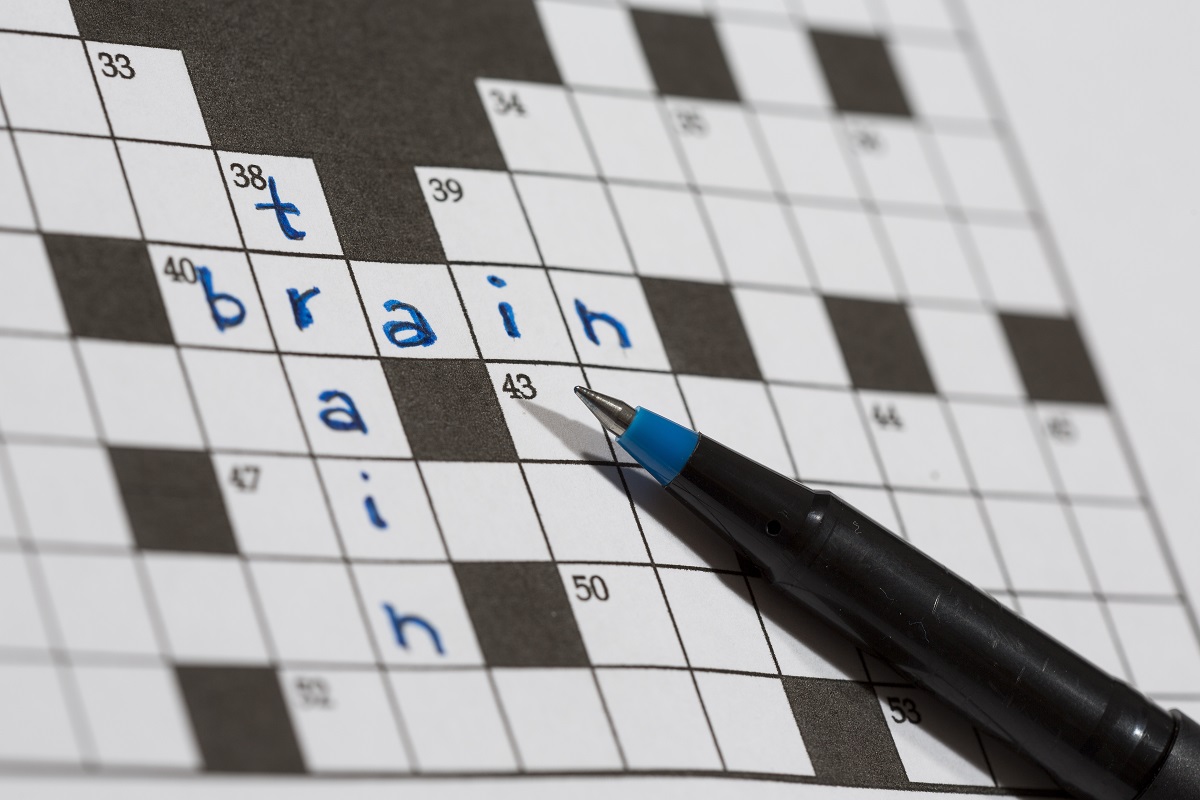Can playing games prevent dementia? Researches are studying whether puzzles and games designed to improve cognitive skills can slow down or prevent mental deterioration. Initial studies show that crossword puzzles and computer games are the most effective preventing and managing cognitive decline.
As little children, we are all naturally inquisitive and take time to play. As we age and get busy with a family and career and don’t engage in as much game playing; however, researchers now think that playing certain types of games can improve brain function and keep the brain sharp. Will memory games, word games, and puzzles help older adults maintain brain fitness?
What Are Prevention Brain Games?
Certain games may help you slow the deterioration of age. While games are not a magical cure for Alzheimer’s prevention and other forms of dementia, brain exercises do seem to help some people keep their minds sharp as they age.
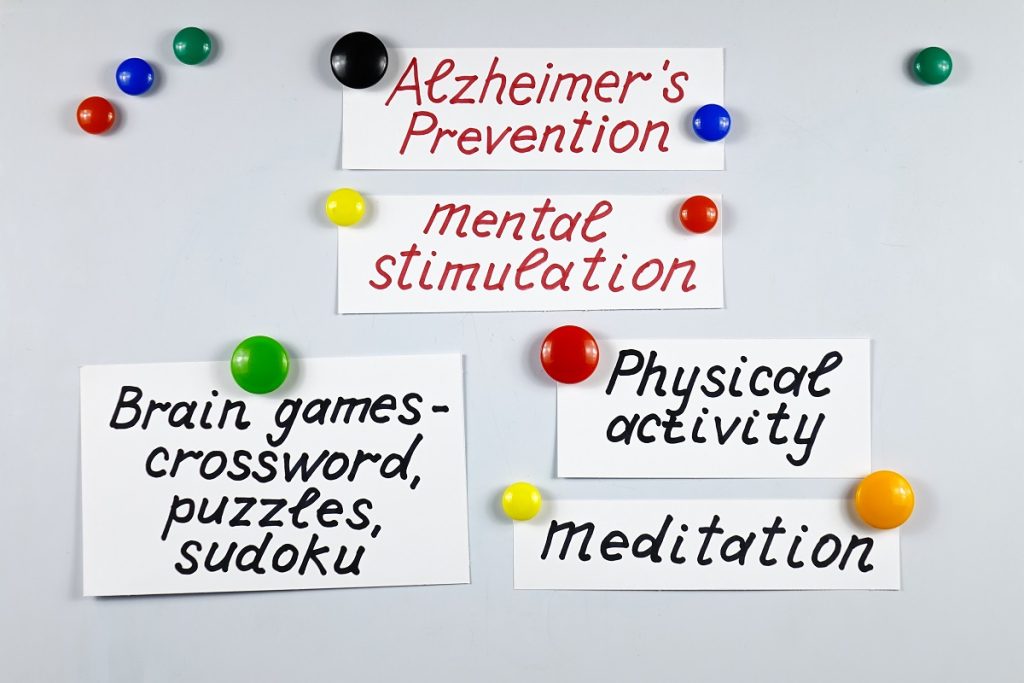
Prevention games are reputed to help improve memory loss by keeping the brain active as well as training the brain through memory games. Although the jury is still out as to exactly how effective brain training games are, there is a great deal of anecdotal evidence that it does improve working memory.
What Are The Benefits Of Prevention Brain Games?
- Boredom Buster: Although this is not the intent planned by those who recommend that people do problem-solving games and puzzles, such pastimes are a proven boredom buster for older adults who might otherwise feel unengaged and lonely.
- Companionship: Whether your loved one is going to a local senior center to play games, playing with a caregiver, or playing online, games can offer companionship.
- Concentration: Not using your brain as you age can result in difficulty concentrating. Playing games and focusing is a form of cognitive training that helps concentration.
- Critical Thinking: Forcing yourself to focus on games, whether you are talking sudoku or other number puzzles, crossword puzzles, or card games, causes you to think and focus.
- Mental Agility: A mental training program using s board games, brainteasers, and other types of stimulation can improve mental agility.
- Reduces Symptoms of Depression: Playing games can improve mental health, including symptoms of depression and anxiety. Emotional well-being is just as important as physical!

What Research Has Been Done On The Effectiveness of Brain Games?
According to Psychology Today, research has been done on brain games in order to ascertain if engaging in games thought to be brain trainers could reduce symptoms of mild dementia. While the hope is that these exercises would improve cognitive function and help slow the impact of dementia, evidence has not substantiated this hypothesis.
Part of the problem is that studies of brain training have not been rigorous enough and lacked the proper design and analysis to make them scientifically valid. What studies have substantiated is that practicing a task will help when doing that exact task (or a closely related one). but not “improve performance on closely related tasks, and little evidence that training enhances performance on distantly related tasks or that training improves everyday cognitive performance.”
Some research has shown that those whose mental exercise of choice was crossword puzzles seemed to have the best results in improving cognitive function. They are unsure why this particular type of game is yielding the best results.
One researcher has determined that what is more helpful is doing challenging games or puzzles. In other words, just playing games is not good enough. You must continue to challenge your mind in order to see results.
Do Games Help Prevent Mental Decline?
Playing games is associated with less mental decline. Is it a magical cure? No, it is not. Will it stop dementia and Alzheimer’s disease? Sadly, that is also a no. What it will do is help keep your brain sharp, improve short-term memory, and keep you engaged and feeling mentally younger.
There is research out of Ohio State University that shows that playing games like“Wordle can benefit nearly any person with a cognitive issue, including those with head trauma, stroke, sleep apnea, “chemo brain” and attention-deficient conditions.” Games that are stimulating and challenging benefit the brain and overall health and even help destress some people.
What Kinds Of Games Are Most Effective?
Board Games: Games that require mental engagement such as checkers and chess are more impactful than games that do not. Scrabble is an excellent board game that requires deep thinking.
Cards: Card games are both engaging and social activities.
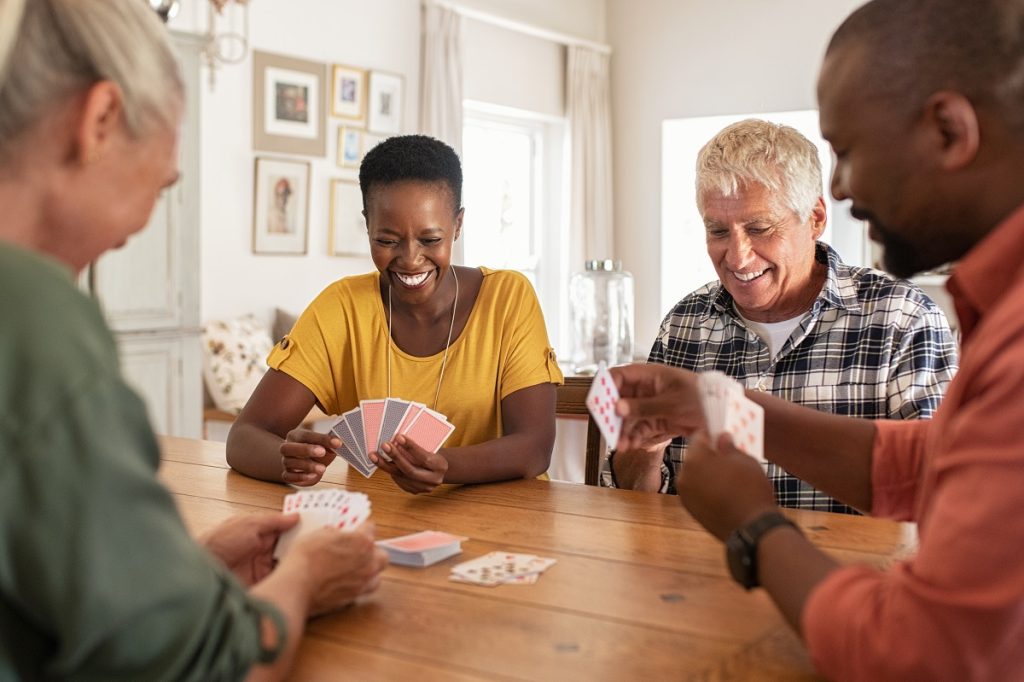
Jigsaw Puzzles: Putting together a puzzle is an excellent way to pass time as well as keeping your brain busy finding relationships between pieces.
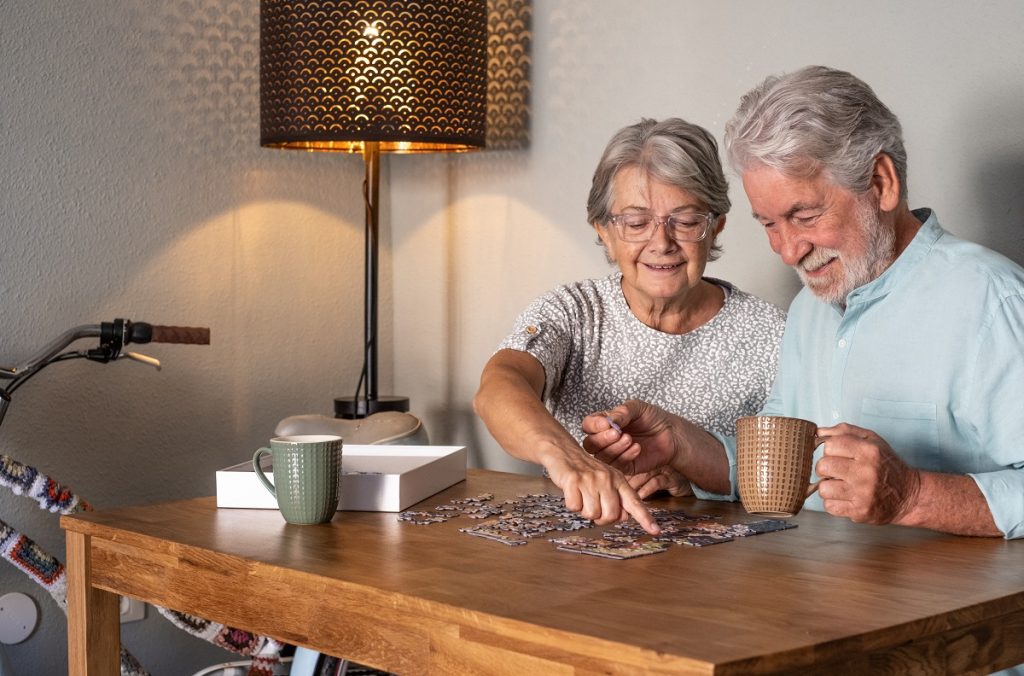
- Lumosity: Lumosity is a brain-training computer program that people can purchase via a subscription. While it can help some tech-savvy seniors, the manufacturer of Lumosity was sued for its claims about the game’s effectiveness.
- Phone Games: Whether you have an Android or an Apple phone using the iOS system, there are many fun games that can be played on your phone by downloading an app.
- Sudoku: These number puzzles are an excellent way to engage your brain.
- Video Games: Although we typically think of younger people playing video games, they can be enjoyed by older adults and many are great for working hand dexterity.
- Word Puzzles: There are many types of word puzzles, such as word searches and crossword puzzles.
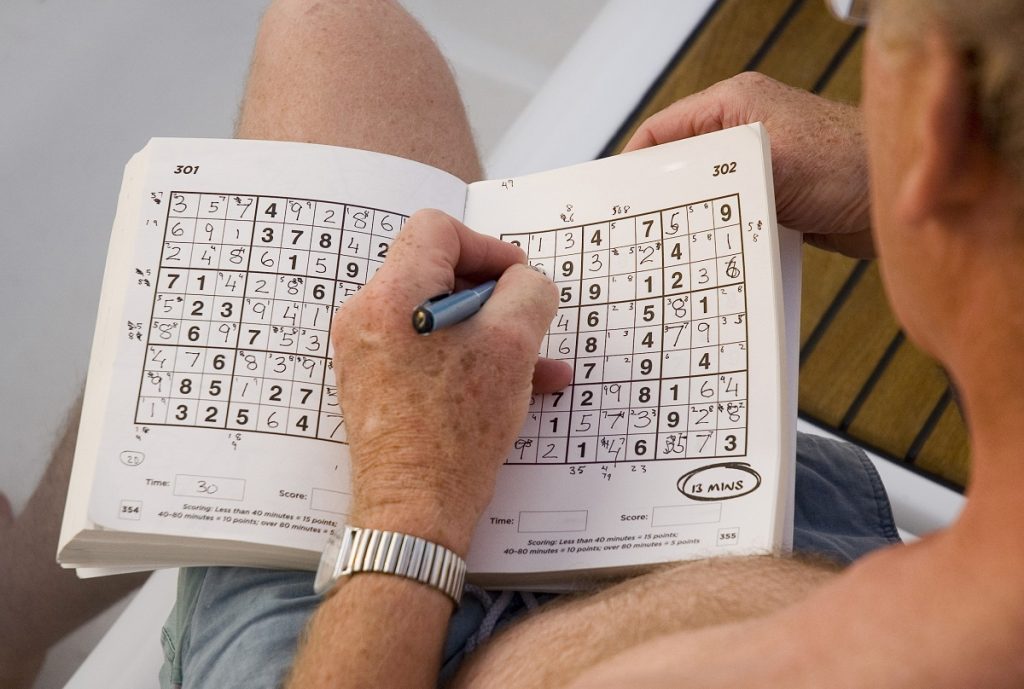
What Else Can Seniors Do To Stay Mentally Alert And Aid Brain Health?
While playing games may not be a proven way to maintain brain function, other good habits can keep a person mentally alert.
- Be Social: Connecting with friends will not only help you stay sharp, it can alleviate depression.
- Diet: Eating a healthy diet can help with physical and mental health, including keeping your brain sharp. Be certain the diet follows the recommendations for senior citizens.
- Don’t Smoke or Drink Excessively: If you smoke, quit. If you drink, do so in moderation to help maintain alertness and overall health. Smoking and drinking both increase your chance of dementia.
- Hobbies: Engaging in a hobby of some sort is another way to improve your alertness and brain health.
- Keep Learning: The absolute best thing you can do for your brain is to learn something new every day.
- Stimulate Your Brain: This can be through games, conversation, reading, or other activities.
- Move: You don’t need to change your residence, but, you need to stay moving and active. Movement is a great way to stay sharp.


